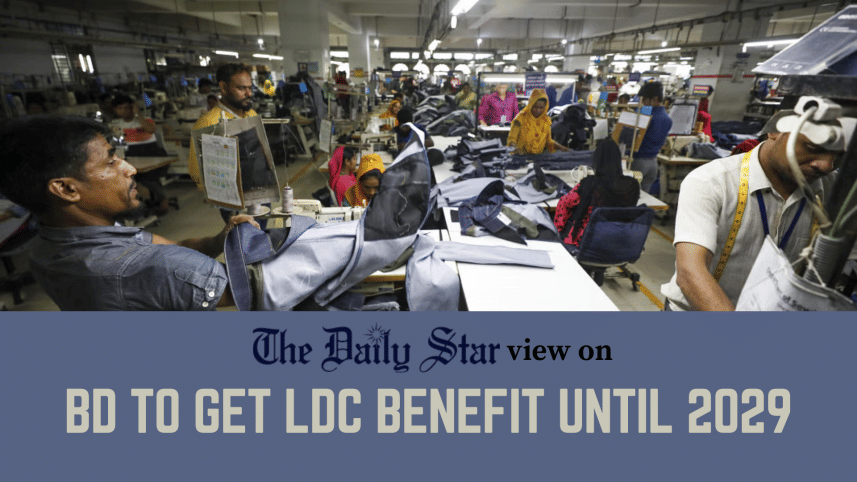We must improve our competitiveness after LDC duty extension

We are relieved to know that the World Trade Organization (WTO) has decided to allow Bangladesh among other Least Developed Countries (LDCs) to enjoy duty-free market access for three more years after graduating to a developing nation category—which, for Bangladesh, will be in 2026. We appreciate the WTO's decision, endorsed by its members at the recent Ministerial Conference in Abu Dhabi, as it is key to maintaining a trajectory of steady growth for the country. Bangladesh has already hugely benefited from this trade benefit. What is crucial now is to make sure that we utilise this opportunity to strengthen our industries in order to make them more competitive and ready to take on the challenges of graduation.
The extension no doubt alleviates a lot of worry of industry leaders and the government as it had been estimated that Bangladesh could lose $7 billion worth of trade annually after graduation. In recent years, the Covid pandemic and Russia-Ukraine war have wreaked havoc on the economies of LDCs. Bangladesh is grappling with major setbacks including the US dollar crisis, energy crisis, high food inflation, costly import of essentials, etc. The prospect of not having the preferential trade facility that it has enjoyed for so long would have meant a huge blow to our economy.
Bangladesh can now negotiate for trade benefits with the EU, China, India, the UK, South Korea and other countries where it qualifies for the facility. It goes without saying that due to the duty benefit under the LDC category, Bangladesh has been able to considerably expand its international trade. As much as 73 percent of the country's shipment enjoy LDC-linked market access, making it the second-largest apparel supplier in the world after China.
With so much at stake, we must take full advantage of the extension opportunity to install effective regulatory measures and legal structures to make our industries, especially the RMG sector, more efficient. This means upgrading our management skills, protecting labour rights, improving labour skills, and investing in research and development to produce high-quality products. The goal must be to prepare our industries so that they meet international standards to be competitive by 2029. This will require the private sector and government to closely work together. Going forward, they must see the WTO's extension as a chance to strengthen our industries for future prosperity.



 For all latest news, follow The Daily Star's Google News channel.
For all latest news, follow The Daily Star's Google News channel. 


Comments